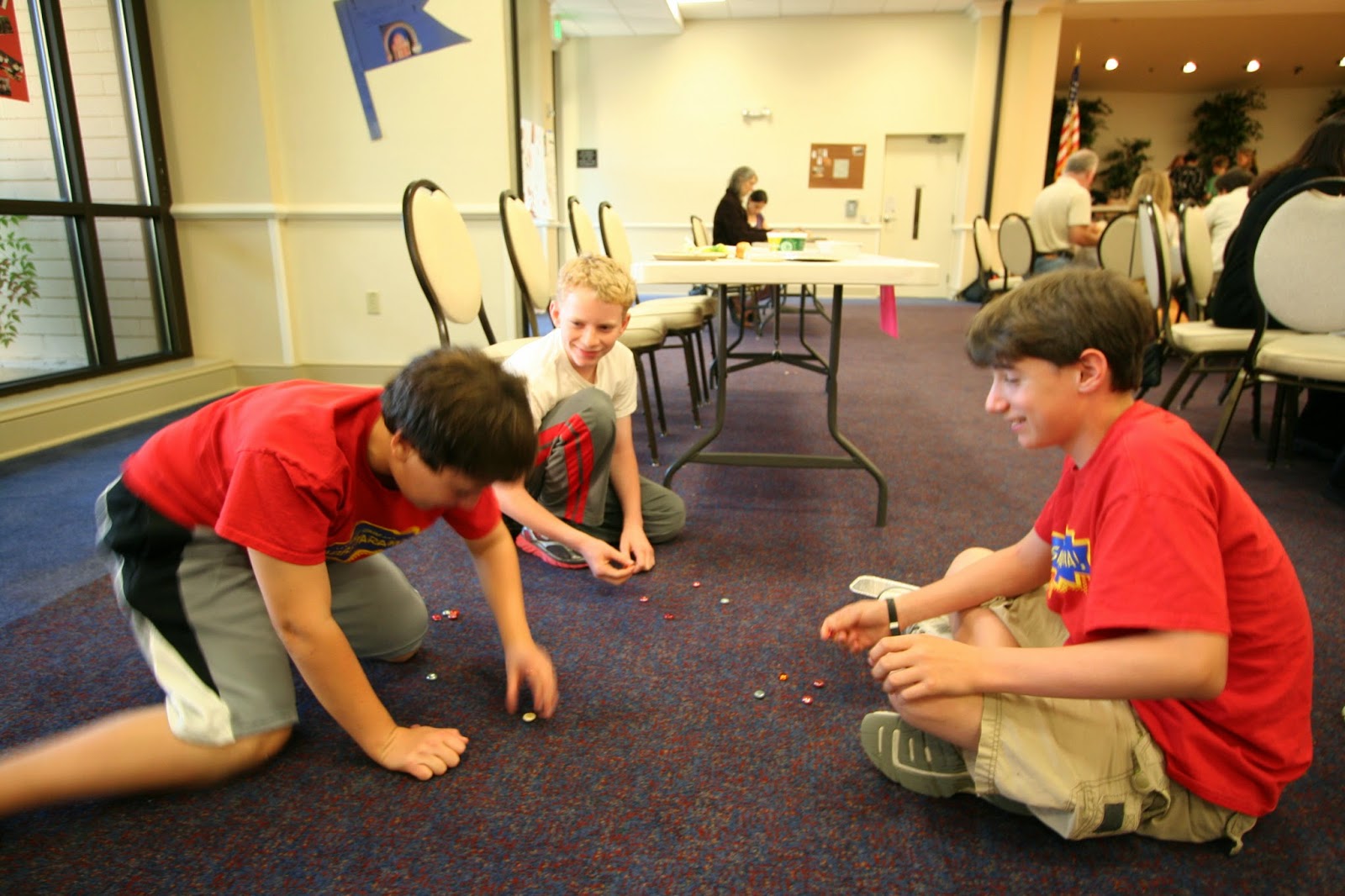During the first hour, our Edot students finally found out what happened to the main characters in the story of the "Family Y Aguilar," which I've been reading to them this semester. I won't give away the ending; hopefully, you'll have a chance to read the novel, written in the 19th century in Germany. The language is a bit stilted, but the story is a gripping one, and chock-filled with details about the life of the secret Jews in Spain during the 17th century.
Immediately following the story, we played our final Shekel Game of the year. This game is always a big hit with the students. They bet a certain amount of shekels that they can answer a question correctly as a group (questions come from the material we've learned during the entire year in Hebrew, Siddur (Prayerbook) and Blessings, Jewish History, Jewish Holidays and the Jewish Calendar, Edot, and the story we've been reading). The one question all the groups answered incorrectly was, "What does the name of the holiday Tu Bish'vat" mean?" They all gave some form of the answer, "The birthday of the trees." WRONG! The name of the holiday is actually the date of the holiday - the 15th day of the Hebrew month of Sh'vat. It celebrates the "birthday of the trees," but that's not the translation of the name. Thankfully, the students were able to recall almost everything that we learned this year, and had a terrific time doing so.
.JPG) |
| Group huddle, to be sure everyone agrees on the answer |
.JPG) |
| The reporter (Stephen) is giving the answer the group has decided upon |
And after the concert was over, it was time to move into the Social Hall for the barbeque and entertainment by our own Kleztones! Lots of food, lots of music, and lots of fun in the bounce house on the lawn and playing gaga.
And so the 5774 Religious School year has come to an end. Hopefully, you all have as many good memories as I do of what we accomplished during the year in the classroom, during our family workshops, and at Temple Isaiah events. Enjoy the summer, and I look forward to greeting you all again in September.
SHALOM V'L'HITRA'OT!
...and one last plug for the Hebrew Elective Cookbook - you can purchase it for $18.00 (chai!) and enjoy a summer of learning and practicing Hebrew in a fun and delicious way with the entire "mishpacha" (family). Why wait until the fall?!
.JPG)

.JPG)
.JPG)
.JPG)
.JPG)
.JPG)
.JPG)
.JPG)
.JPG)
.JPG)
.JPG)
.JPG)
.JPG)
.JPG)
.JPG)
.JPG)
.JPG)
.JPG)
.JPG)
.JPG)
.JPG)
.JPG)
.JPG)
.JPG)
.JPG)
.JPG)
.JPG)
.JPG)